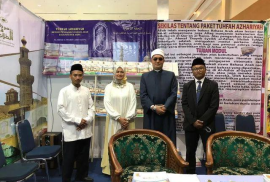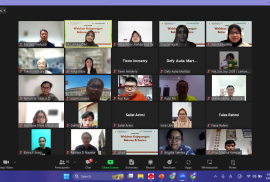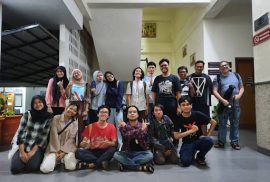Friday, May 17, 2024, the Literary Library Community of Faculty of Cultural Sciences UGM together with Kognisi, a learning platform from Kompas Gramedia, held a literacy gathering entitled, “Arriving in Yogyakarta” in the green open courtyard of Soegondo Building, Faculty of Cultural Sciences UGM. This literacy gathering coincides with the commemoration of National Book Day which occurs every May 17. Participants who took part in the activity did not only come from UGM students, but students from other universities such as Yogyakarta State University and the general public also attended the literacy meeting of Perpustra UGM with Kognisi.
The literacy activity began with the “Celoteh Buku” session, which is sharing stories about books from each participant of the community to be told in front of other participants to hone storytelling skills. Each participant not only explained the summary of the book’s story, but also raised personal opinions from the book he read. After a number of participants told their books, the “Silih Gilir” session began, where each participant packed their respective books into a brown envelope and gave the book to the right side participant continuously until the signal stopped from the moderator, then they would open the envelope containing the book that had been given by the participant next to them randomly and read the book which was then interspersed with a “Read Together” focus time session from the book he got.
On the same occasion, Perpustra also opened a book donation drive open to the community and students with the aim of donating to those in need to help improve regional literacy.






